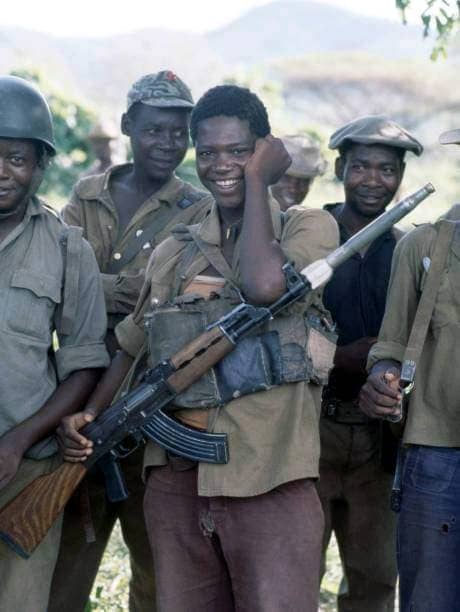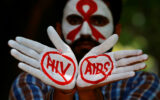
LEST WE FORGET – Instalment 3
By Nqobizitha Dumakude Khumalo
Gunfire echoed across the night……
Tracer bullets streaked through the darkness. Searchlights pierced the void, turning night into an eerie simulacrum of day. Helicopters and warplanes thundered overhead, strafing and bombing relentlessly. Explosions reverberated, shaking the fevered earth which trembled like something fragile and infirm. A fierce firefight was underway.
The battle was grossly unequal.
The towering colonial Goliath waged war against a fledgling David. Goliath wielded the formidable machinery of war: fighter jets, armoured vehicles, helicopters, heavy artillery, and machine guns. David, in contrast, stood armed only with AK-47 rifles, a handful of light rocket launchers, and the unwavering determination of freedom fighters.
Yet, through the darkness, David held his ground.
For much of the night, the outnumbered guerrillas fought with valor and precision. Enemy combatants fell, military vehicles burst into flames, and some aircraft were brought down. The sharp scent of gunpowder hung heavy in the air.
But this was not the biblical David of triumph.
As dawn approached, ammunition dwindled. One by one, the guerrilla fighters fell. Their rifles fell silent. The eastern horizon flushed red, not with the promise of a new day, but as though stained with the blood of the fallen.
The sun, crimson with grief, pushed above the horizon. For the small band of guerrillas, it would rise no more. What remained of them—mangled bodies, broken bones, bared teeth—lay scattered like a scene from a Senecan tragedy.
Thus perished the seven pioneer ZANLA guerrillas at Chinhoyi, northwest of Harare:
Simon Chingozho Nyandoro, Christopher Chatambudza, Godwin Manyerenyere, Godfrey Dube Matsikidze, David Guzuzu, Chubby Savanhu, and Arthur Maramba.
Goliath had prevailed.
Darkness had claimed the battlefield. The forces of repression celebrated. The machinery of imperial domination had won that round. Even the sun seemed to hide its face.
Goliath laughed.
He laughed over the broken bodies of his victims. He laughed until the earth itself shuddered. He laughed until tears welled in his eyes. His laughter reverberated across the hills of Zimbabwe, through the valleys of Africa, across oceans. It echoed through the capitals of the world.
The forces of oppression rejoiced.
They celebrated another supposed victory against “terrorism.” Another triumph over the spread of so-called “godless communism.” They congratulated themselves for defeating those who dared to challenge the established global order.
But the progressive world wept.
They mourned a nation bound in chains, a people groaning under the yoke of servitude, denied dignity and the right to self-determination.
Still, the victor laughed.
But to those who truly looked, it was not a laugh of triumph. It was a hollow grimace. The man-eating ogre’s roar of satisfaction. The hyena’s glee over carrion. Beneath the surface was something else entirely—a death rattle of a system in decline. A requiem for a doomed empire. Only those with discerning ears could hear it. Only those with prophetic vision could see it.
The mouse had confronted the cat.
The rabbit had defied the lion. It was a moment of profound symbolism—a signal of things to come. The Chinhoyi battle marked a definitive moment in Zimbabwe’s liberation struggle. It proved the black man could fight. It proved the white oppressor was not invincible.
It proved, most dangerously, that both were prepared to die for the land.
Today, nearly fifty years later, we pause in solemn remembrance of these gallant sons of the soil. They were the first among thousands who would follow their path, until on 18 April 1980, Zimbabwe raised her flag and a new nation was born.
So today, on Heroes Day, kneel if you will.
Gather a handful of this sacred soil. Smell the memory of blood that binds it together. Remember this truth: if not for the sacrifice of these sons and daughters of the soil, this land would still be trodden by foreigners, and you—a stranger in your own country.
Zimbabwe came through the barrel of the gun. Nothing can change that.
Lest we forget.
Credit: Some imagery and expressions partly inspired by Charles Mungoshi’s poem, “Mwari Komborerai Zimbabwe.”







